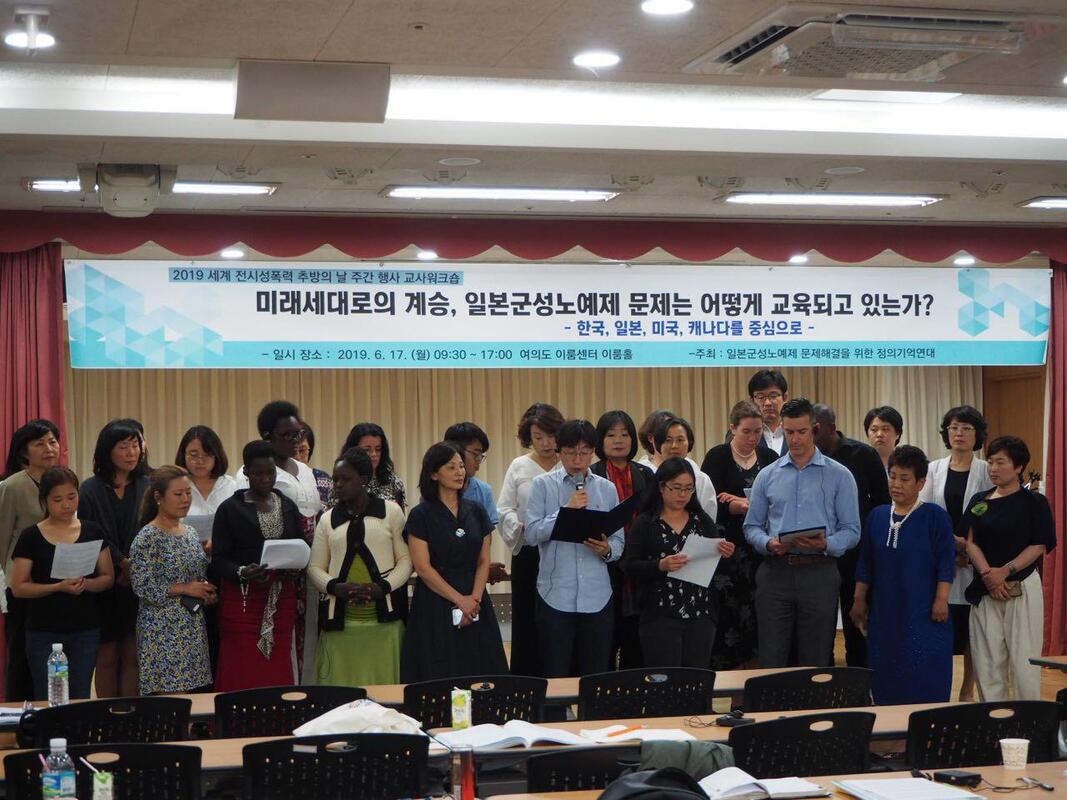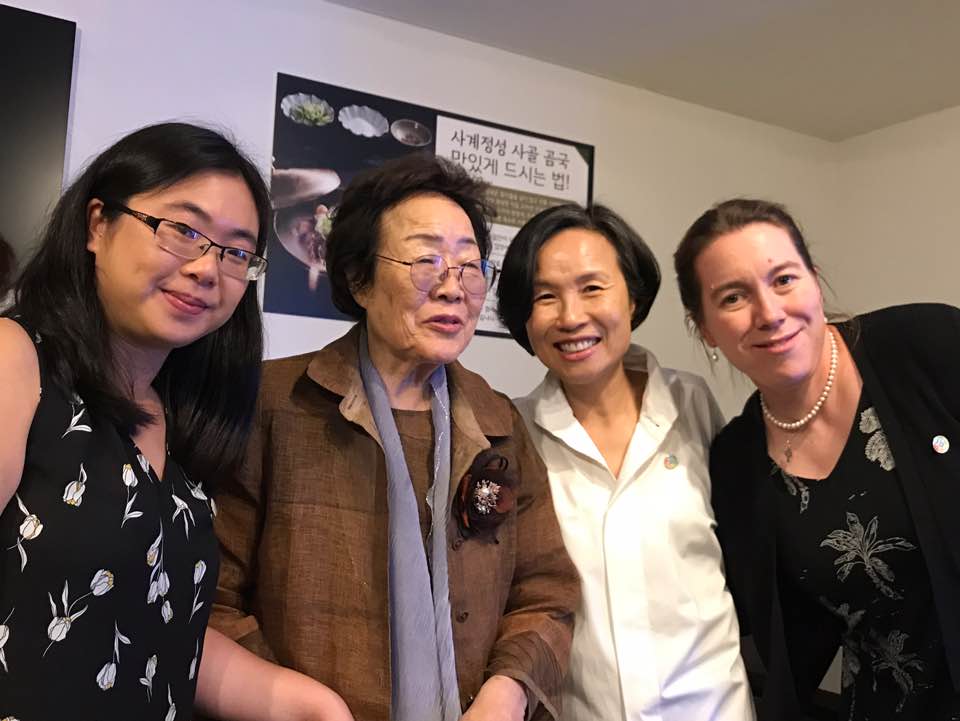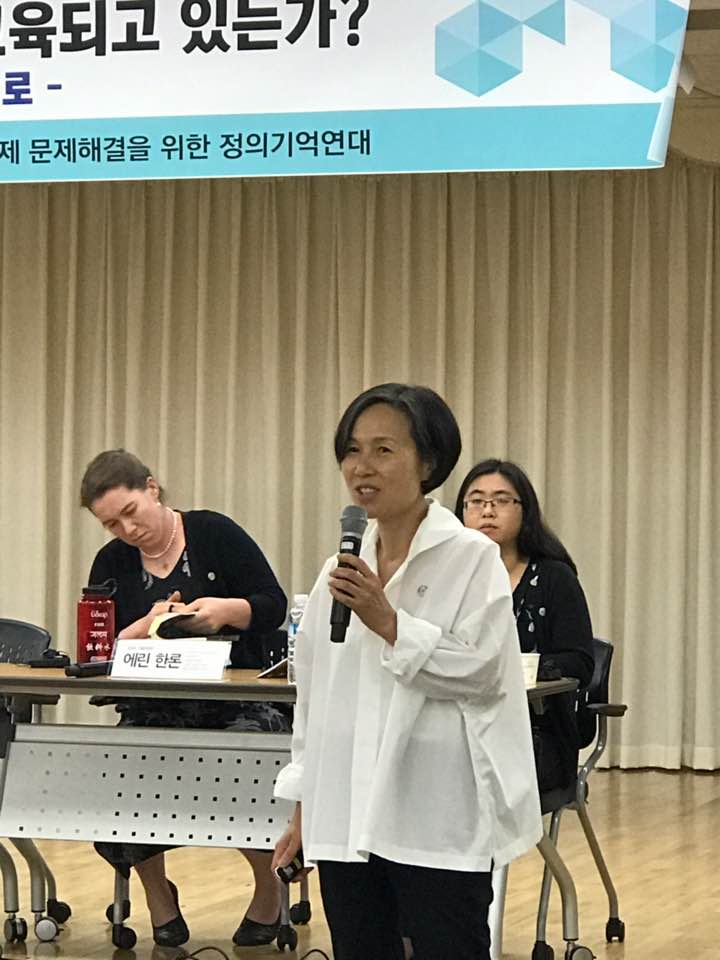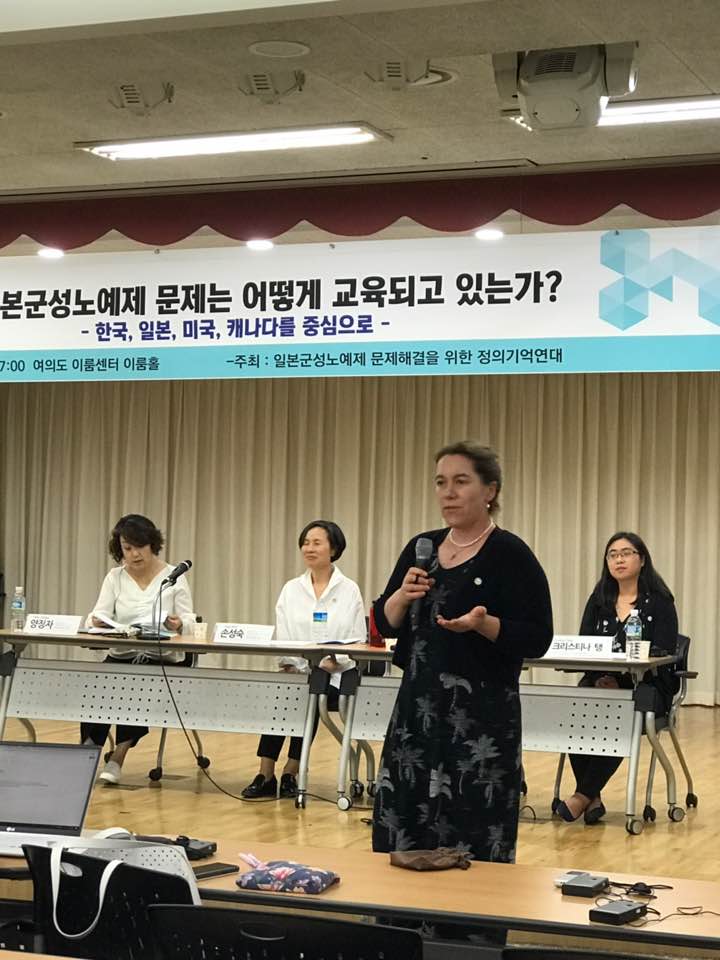|
The first day of the 2019 Elimination of Sexual Violence in Conflict Conference hosted by The Korean Council in Seoul, South Korea was focused on the question of: “How do we teach about the Japanese military sexual slavery issue?” and consisted of presentations by an international group of educators. The conference was opened by keynote speaker Yoon Meehyang who spoke about the importance and challenges of teaching about the Japanese military sexual slavery issue. She was followed by Yang Chingja from the Kibotane Fund in Japan. Yang spoke about how textbooks in Japan are adopted and how the issue of “comfort women” have appeared and disappeared from Japanese middle school and high school textbooks. This has made it challenging to teach this history in Japan as teachers themselves may not know about the topic. Her organization was formed in 2017 to help promote the history of “comfort women” and in 2018 and 2019, they recruited Japanese college students to visit South Korea to learn more about the history.
Yang was followed by Sung Sohn, Executive Director of the Education for Social Justice Foundation (ESJF) in San Francisco, who spoke about the educational system in California and discussed the content of “comfort women” in the 2017 California History Social Studies Framework. Sohn also talked about the work that ESJF has been done to help implement the framework in Bay Area classrooms. Erin Hanlon, a teacher from Lowell High School, spoke next about the challenges in teaching the topic including: its exclusion from the textbook used by most high school students in the San Francisco Unified School District, the trade-offs teachers have to make in terms of teaching certain topics, and a concern of desensitizing students by teaching too many atrocities. Christina Tang, a teacher from Galileo Academy of Science and Technology, was the last educator from San Francisco to speak; she spoke of challenges she’s observed in teaching “comfort women” history and how ESFJ’s Teacher Guide and their workshops have tried to address those issues. After lunch, educators from Canada and South Korea spoke. Judy Cho, program director of ALPHA Education in Toronto spoke about the work the organization has done to promote the history of WWII in Asia, including “comfort women” history, in classrooms that are often Eurocentric. They do outreach and have a variety of lesson plans to help educators teach the topic. Next, Mark Croswell, a teacher from Bayview Secondary School, spoke about his historical method (ask questions, collect and analyze data, create arguments, and communicate findings) and his technique of analyzing sources (OPCVL) and how he applied that to having students analyze sources from “comfort women” themselves and from the perpetrators. Then Seong Hwan-cheol, a teacher at Ewha Girls’ High School and sponsor of the History Club, gave a presentation about how the students in his club began a movement to build a “comfort women” memorial, called the Statue of Peace, on the grounds of their high school. This eventually spread to 244 other schools in South Korea erecting their own statues and in 2018, 46 high schools built 259 road blocks that each inscribed the story of a “comfort woman” survivor. He spoke about students’ strong desire to make change and be activists and how important it is to support them. The last speaker was Byean Hyera who demonstrated her problem-posing approach to teaching “comfort women” history and English at the same time at Hoam Middle School. Day one was a unique chance for teachers across the world to share their experiences, introduce resources and techniques they use in teaching, and inspire each other. Teachers left with new ideas that they could apply to all topics they are teaching, not just “comfort women” history. However, they also left with a renewed commitment to teaching “comfort women” history as they heard the urgency of the survivors firsthand. Teachers felt a sense of international solidarity as they saw the many ways and places “comfort women” were being taught and that they were part of a heretofore unseen group of educators all working towards a similar goal.
0 Comments
Leave a Reply. |
CategoriesCategories |
Proudly powered by Weebly





 RSS Feed
RSS Feed